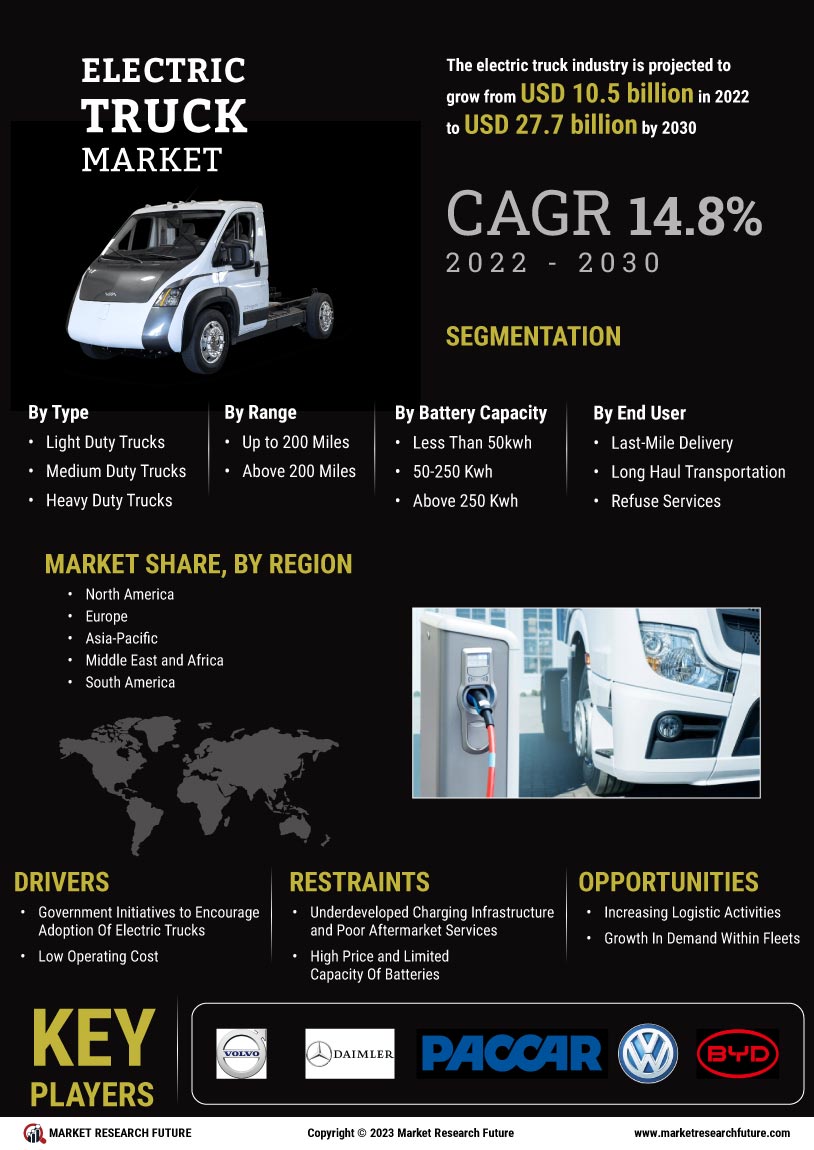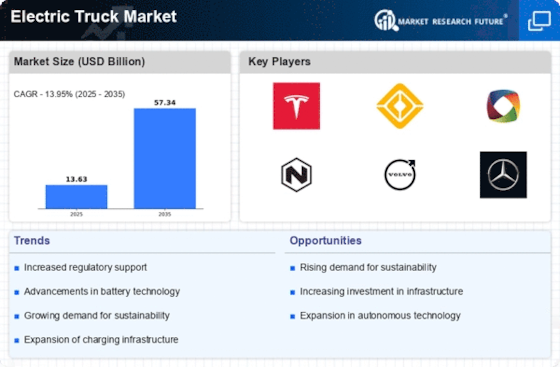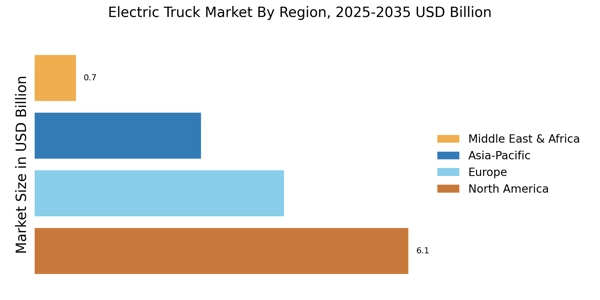The Electric Truck Market is currently characterized by a dynamic competitive landscape, driven by increasing demand for sustainable transportation solutions and stringent regulatory frameworks aimed at reducing carbon emissions. Key players such as Tesla (US), Rivian (US), and BYD (CN) are at the forefront, each adopting distinct strategies to enhance their market positioning. Tesla (US) continues to leverage its technological prowess and brand recognition, focusing on innovation in battery technology and autonomous driving capabilities. Rivian (US), on the other hand, emphasizes its commitment to sustainability and outdoor lifestyle, targeting niche markets with its electric delivery vans and adventure-oriented trucks. BYD (CN) is expanding its global footprint through strategic partnerships and local manufacturing, aiming to capitalize on the growing demand in both developed and emerging markets. Collectively, these strategies contribute to a competitive environment that is increasingly focused on technological advancement and sustainability. In terms of business tactics, companies are localizing manufacturing to mitigate supply chain disruptions and optimize costs. This approach is particularly evident in the Electric Truck Market, which is moderately fragmented, with several players vying for market share. The collective influence of key players is shaping a landscape where innovation and operational efficiency are paramount, as companies seek to differentiate themselves in a crowded marketplace. In August 2025, Tesla (US) announced the opening of a new Gigafactory in Texas, aimed at ramping up production of its electric trucks. This strategic move is significant as it not only enhances Tesla's production capacity but also positions the company to better serve the North American market, potentially reducing delivery times and costs. The establishment of this facility underscores Tesla's commitment to maintaining its leadership in the electric vehicle sector while responding to increasing consumer demand. In September 2025, Rivian (US) secured a major contract with a leading logistics company to supply electric delivery vans, marking a pivotal expansion of its commercial vehicle segment. This partnership is indicative of Rivian's strategic focus on the commercial market, which is expected to grow substantially as businesses seek to electrify their fleets. The collaboration not only enhances Rivian's revenue potential but also reinforces its brand as a viable player in the electric commercial vehicle space. In July 2025, BYD (CN) launched a new line of electric trucks specifically designed for urban logistics, featuring advanced battery technology and smart connectivity. This initiative reflects BYD's strategy to cater to the growing demand for efficient urban transportation solutions. By focusing on urban logistics, BYD positions itself to capture a significant share of the market, particularly as cities implement stricter emissions regulations and seek sustainable transport options. As of October 2025, the Electric Truck Market is witnessing trends that emphasize digitalization, sustainability, and the integration of artificial intelligence in vehicle operations. Strategic alliances are increasingly shaping the competitive landscape, as companies collaborate to enhance technological capabilities and expand market reach. Looking ahead, competitive differentiation is likely to evolve from traditional price-based competition to a focus on innovation, technological advancements, and supply chain reliability. This shift suggests that companies that prioritize these elements will be better positioned to thrive in an increasingly competitive environment.


















